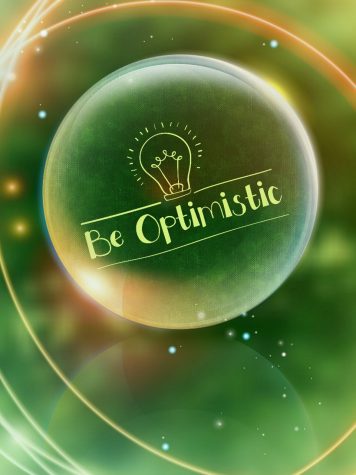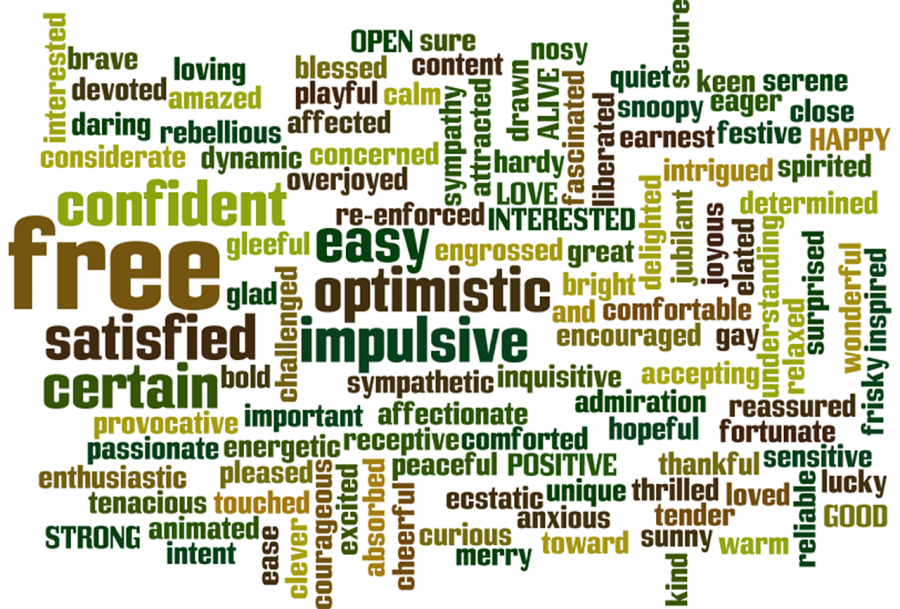Finish this Phrase: A Glass Half…
A glass half…what? Two differing perspectives, optimism and pessimism, argue to finish the previous sentence. The common answers, “full” and “empty”, each reveal the nature of their respective viewpoints and the attitudes with which people view life and, more specifically, the future.
In David Hecht’s study, “The Neural Basis of Optimism and Pessimism,” he expressed how it is most common to consistently follow one of these viewpoints, leaving people to be defined as either optimists or pessimists. Optimists “see the world full of potentials” and “are confident of what the future holds,” while pessimists focus on “potential dangers and pitfalls” leaving them to “remain passive when encountered with a challenge,” as described by Hecht. Hecht’s research was done in affiliation with the University College London’s Institute of Cognitive Neuroscience.
A glass half full

Although optimism is a mindset, Harvard Health Publishing, of the Harvard Medical School, described it as having a positive effect on physical health. Their discussion of research showed optimistic attitudes correlating with the prevention of serious health risks, such as heart disease. They also revealed optimism to be a helpful tool people used to “cope with disease and recover from surgery.”
Research on this topic continues with one specific experiment that analyzed 309 bypass surgery patients after their procedures to see if their mindsets played a role in recovery. To begin, the patients underwent a psychological evaluation to expose their pessimistic or optimistic leanings. Upon tracking patients after their surgeries, it was discovered that patients with optimistic-leaning results before the surgery were half as likely to need re-hospitalization.
Optimism was also shown to have a positive effect on medical health in both a four-year Finnish study and a seperate American study. The two studies analyzed optimism’s relation to blood pressure, with both finding that those with more positive outlooks and emotions had lower blood pressures than those with opposing views.
Dr. Brenda Nelson, the LHS prevention and wellness coordinator, further explained the beneficial nature of optimism by stating how it allows us to “steer our lives in a far more positive direction” since “we can’t control a lot of the outer circumstances of our lives.” Laura Brandt, AP Psychology teacher, shared that additionally, the mindset works to create and maintain healthy relationships, as those with this mindset typically believe the people in their life act with good intentions.
While optimism has been painted the “healthier” outlook through multiple experiments, the viewpoint is not flawless. Hecht explained how those with optimistic perspectives may be subject to “negligent and reckless behaviors” due to their overconfident opinions.
Ms. Brandt also explained how those with optimistic viewpoints can become too trusting or forgiving, adding that there are circumstances where optimism shouldn’t be used. She said that “if someone has burned you in a relationship once, and you put trust in them again and they do it again, maybe it’s time not to assume positive intent anymore.”
A glass half empty

Looking into the opposite end of the mindset spectrum, Hecht described pessimism as a “preoccupation with the negative instead of positive aspects of a stimulus/situation/event.” Expanding on this, he wrote that pessimism “in regard to the unknown that lies ahead is essentially looking at the world through lenses that are stained with fear, anxiety and stress.”
Dr. Nelson also explained the dangerous domino effect of pessimism by stating that people with pessimistic views are “also going to be very pessimistic toward themselves,” which could “ultimately steer somebody in a direction that’s not helpful.” Additionally, Ms. Brandt expressed how pessimism’s nature is harmful due to is connection with mental illnesses such as anxiety and depression, along with its negative effects on the immune system.
Ms. Brandt also explained the threat pessimism poses to athletes due to the idea of the “self-fulfilling prophecy.” Brandt described the mindset by saying, “whether you think you can or you think you can’t, you’re probably right.” Specifically for athletes, she stated that if “you expect [an opponent] to beat you, [it’s a] pretty good likelihood that’s going to happen,” demonstrating the threat pessimism poses to athletic performances.
Despite pessimism revolving around negativity, lots of effort has been put into discovering the benefits of this outlook. One author, Julie Norem, wrote a book on this topic, titled “The Positive Power of Negative Thinking.”
In her book, Norem focuses on defensive pessimism, which, in an interview with The Atlantic, she described as “a strategy for dealing with anxiety and helping to manage anxiety so that it doesn’t negatively influence performance.” She added that defensive pessimists will set low expectations and then “think through in concrete and vivid ways what exactly might go wrong.”
Norem explains the beneficial nature of this perspective, as it offers control and feelings of preparedness to those who use it. When asked about the biggest drawback to the pessimistic perspective, Norem mentioned the responses of others as many individuals’ initial instincts are to question the competence of the person using this mindset.
The search for the benefits of pessimism does not end with Norem, as the American Psychological Association published research on a similar topic. With a focus on medical benefits, lead author Dr. Frieder Lang, of the University of Erlangen-Nuremberg in Germany explained how “pessimism about the future may encourage people to live more carefully [by] taking health and safety precautions.”












